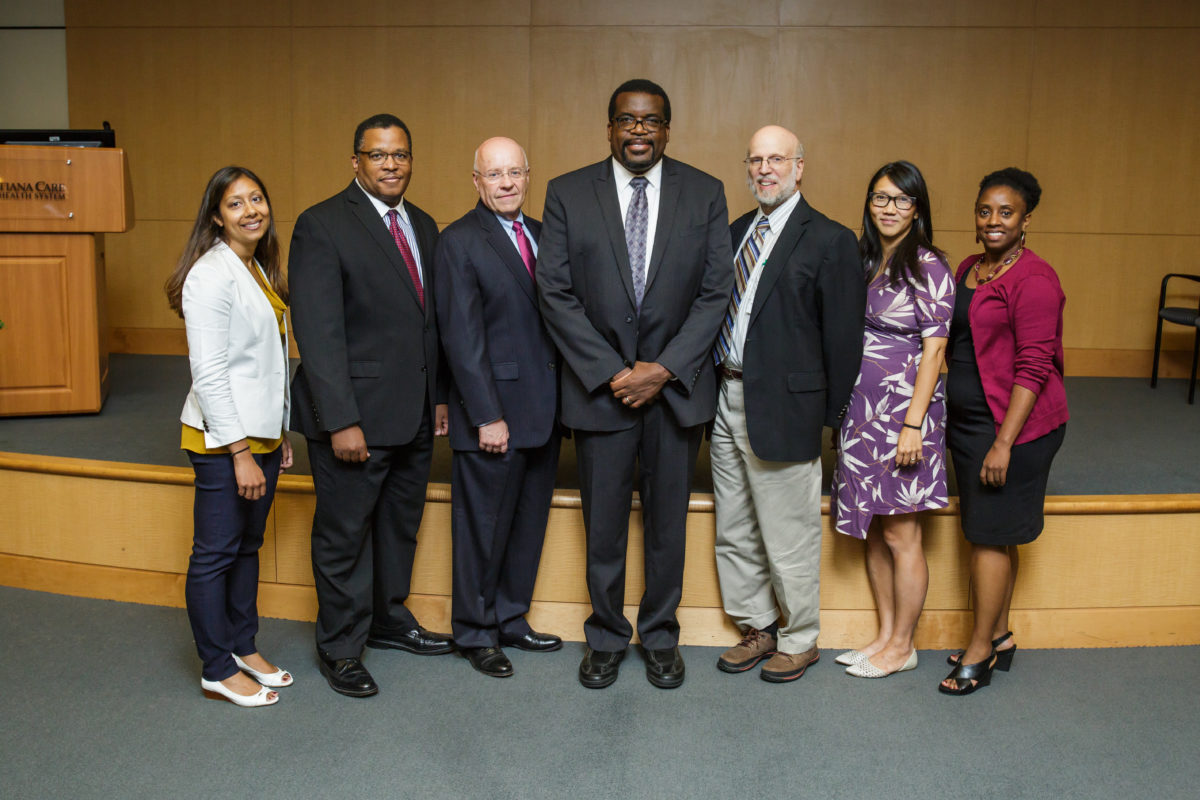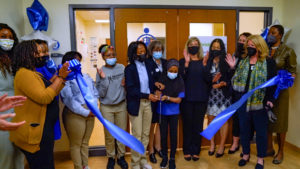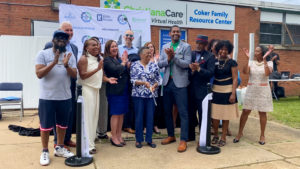Medical care for Delaware prisoners is a constitutional right. But when inmates are released back to their communities, they often experience lapses in treatment for chronic conditions such as hypertension, diabetes and heart disease.
“In 2016, thousands of offenders are expected to be released from the Delaware Department of Correction, and these are people at the fringe of our health system with unmet medical needs that could be addressed,” said LeRoi S. Hicks, M.D., MPH, FACP, vice chair, Department of Medicine.
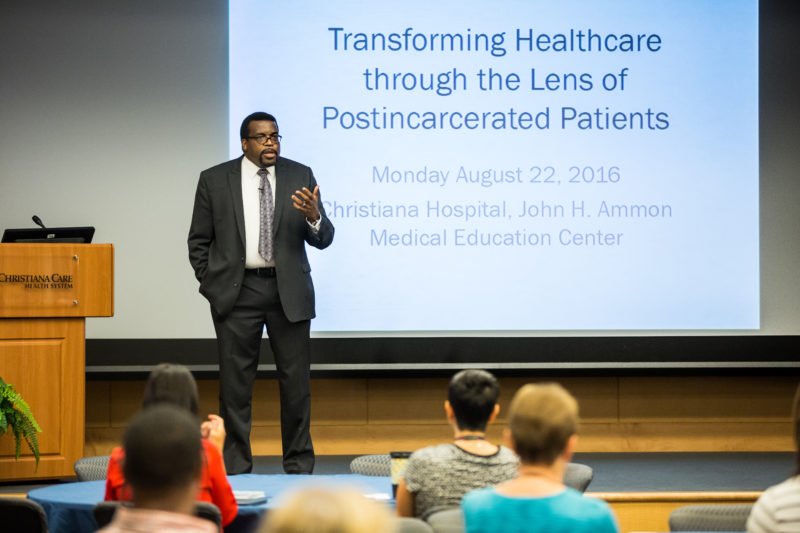
Under the leadership of Dr. Hicks, Christiana Care is seeking to collaborate with community partners to correct these disparities, given that more than 90 percent of inmates will be placed on parole.
To explore research issues and look at models to eradicate disparities, the Value Institute and the Department of Medicine sponsored a conference on “Transforming Healthcare through the Lens of Post-incarcerated Patients.” More than 120 Christiana Care staff and Delaware community members attended the Aug. 22 event at the John H. Ammon Medical Education Center.
The symposium was funded by Delaware CTR-ACCEL, a $20 million, five-year grant from the U.S. National Institutes of Health (NIH), along with $5 million from the state of Delaware.
“One of the most important elements of the grant is community engagement, and this symposium is an example of that,” said William S. Weintraub, M.D., MACC, FAHA, FESC, director of funded research, Value Institute, Christiana Care principal investigator, Delaware CTR Grant, unit medical director, Cardiology ICU, and associate program director, Cardiology Fellowship Program.
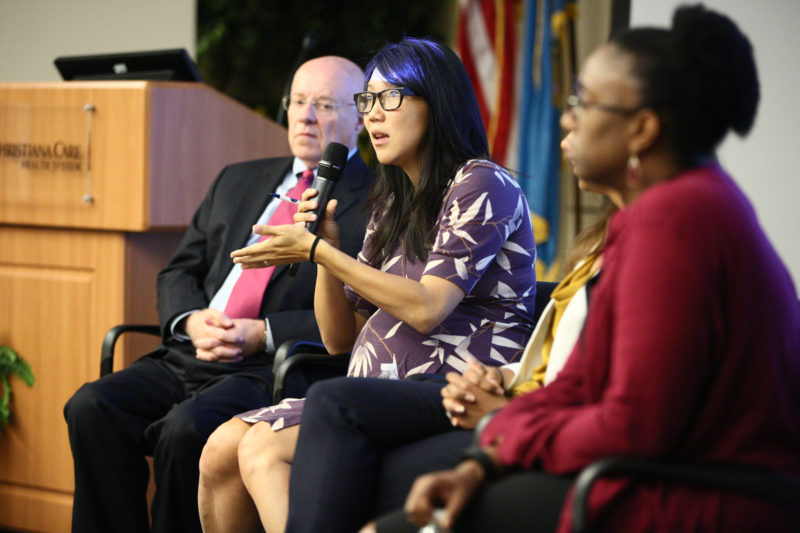
Among the speakers was Emily Wang, M.D., MAS, associate professor, Yale University School of Medicine, who said the scale of incarceration among black men is significant yet its effect on research showing health disparities among minorities has not been well-understood.
“None of our major health studies follow people in and out of prison,” said Dr. Wang. “So we have limited knowledge.”
Existing data on incarceration, which disproportionately affects minorities, show worrisome trends. For instance, 30 percent of state and federal inmates suffer from hypertension compared with 18 percent of the U.S. population, said Nicole Redmond, M.D., Ph.D, MPH, medical officer, National Heart, Lung and Blood Institute.
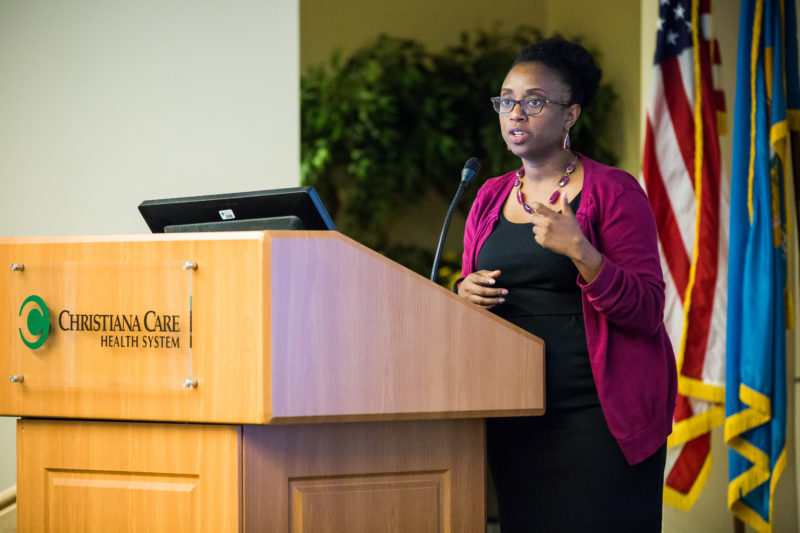
She suggested that as Delaware’s primary medical provider, Christiana Care is in a strong position to positively impact the health of returning inmates. She said it was encouraging that a representative from the Delaware Department of Correction medical team was taking part in the symposium.
Vincent F. Carr, D.O., MSA, FACC, FAC, medical director, Delaware Department of Correction, said he is interested in improving the continuation of care for returning inmates. Currently, there are discharge plans for inmates, who leave with a 30-day supply of medication and a promise that they will get a Medicaid card to pay for health care.
“We have a great relationship with Christiana Care and their infectious disease program,” said Dr. Carr, adding that HIV-AIDS patients receive very good care when they return to the community. But, he said, returning prisoners with other chronic health issues do not consistently seek new providers.
Dr. Wang is co-founder of a San Francisco program to overcome disparities for returning inmates. She reported that since the Transitions Clinic was launched in 2006, it has shown significant success. The program has been adopted in 16 locales, and there is now a Transitions Clinic Network, which has received a $6.8 million Health Care Innovation Award from the U.S. Centers for Medicare & Medicaid Services. The network supports health systems in developing innovative programs to address the re-entry needs of individuals released from prison.
Dr. Wang said the Transitions Clinic model relies on former inmates, trained to be community health workers, who coordinate disease management as part of a team of providers and are multifaceted in what they do to assist returning inmates.
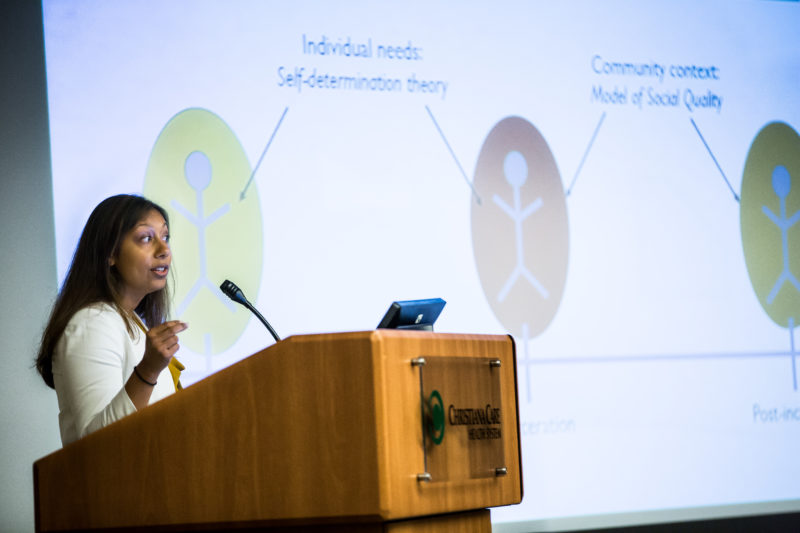
The community health workers reintegrate inmates into their community. Early research on the Transitions model has demonstrated important results. For instance, a randomized trial of 200 inmates released to San Francisco was shown to decrease patients’ emergency department visits by 50 percent over the course of a year, if they were enrolled in the Transitions program. In addition, Transitions Clinic patients have reported decreased rates of depression, hazardous alcohol consumption and smoking compared to historic controls.
Dr. Hicks praised the work of Dr. Wang and the Transitions Clinic Network. He said Christiana Care’s objective is to maximize the health of all Delaware residents, and he is working to offer better care for returning prisoners.
“I envision our becoming a model of care nationally and addressing this extraordinary health need,” he said. “Whatever treatment model we adopt will include a research component so we can establish best practices for this population.”
